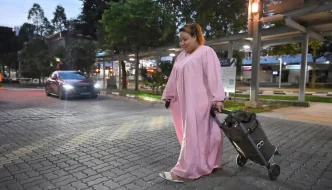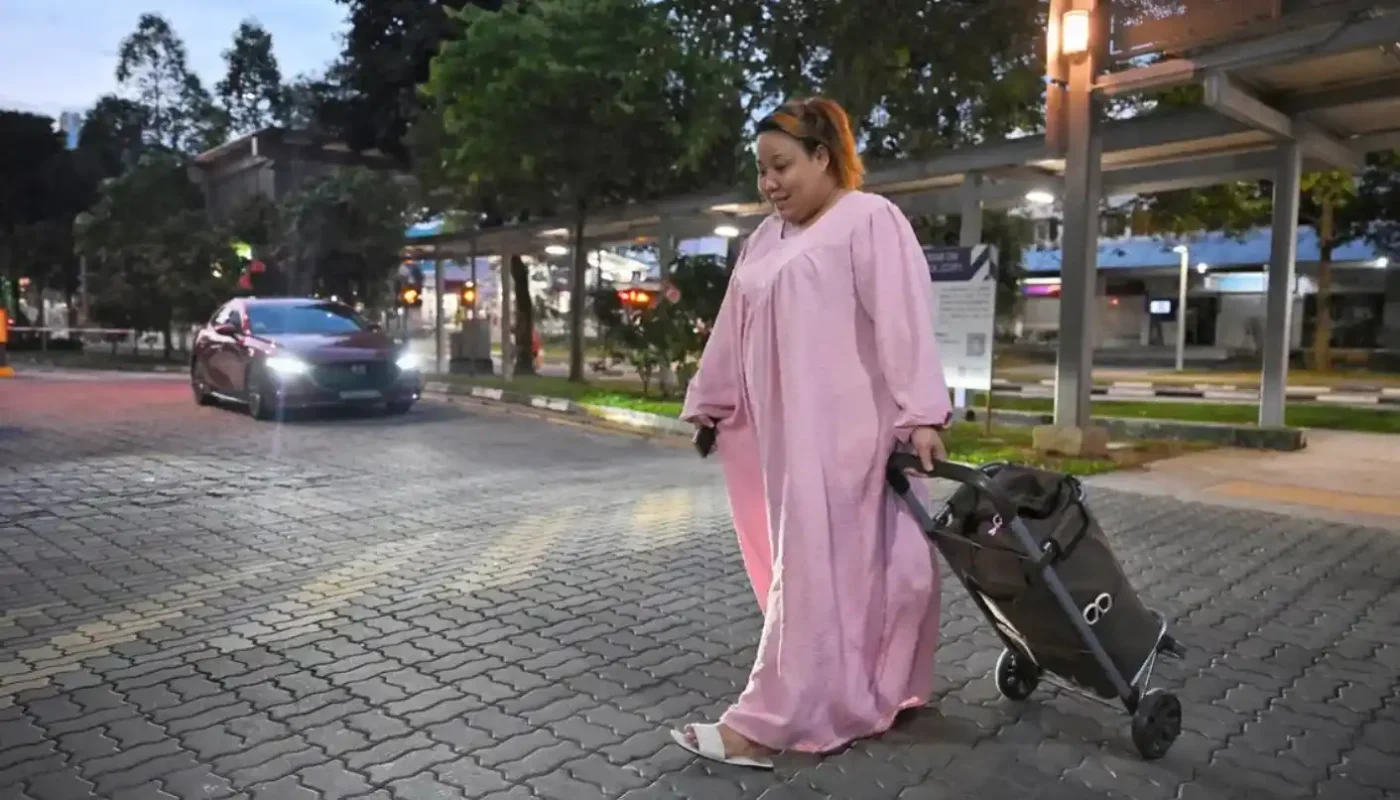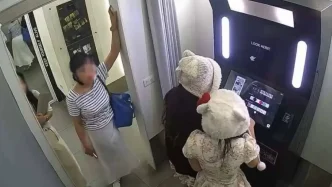In the heart of Singapore’s Ang Mo Kio neighborhood, a small but powerful act of kindness unfolds before dawn. Three times a week, Ms. Lydia Susiyanti Sukarbi, a 36-year-old mother of six and the sole breadwinner of her family, sets up a humble breakfast spread for underprivileged children. Her initiative, Breakfast Buddy, is more than just a meal—it’s a lifeline for kids who often go hungry, and a reminder of the strength of community spirit in one of Asia’s most affluent cities.
Starting the Day with Compassion
At 6:30 a.m., the void deck of Block 228A Ang Mo Kio Street 23 transforms into a gathering spot for about 15 children. Tables are laden with cereals like Froot Loops, bread with spreads such as Nutella and peanut butter, biscuits, and drinks including hot Milo, milk, and juice. For many of these children, this meal is a rare moment of abundance. Ms. Lydia, who once worked as a school canteen vendor, started Breakfast Buddy in February 2025 after witnessing students skip recess to save money for their younger siblings.
“How can we, as neighbors, step up for these kids? I feel I should help to fill this gap” said Ms. Lydia, who lives in a modest two-room Housing Board rental flat with her husband and children. Her words reflect a deep sense of responsibility, one that transcends her own financial struggles. Earning around 3,000 Singapore Dollars (US$2,250) a month from two part-time jobs and a home-based bridal business, she juggles immense responsibilities while her husband cares for their six children, aged between one and 15.
A Personal Mission Rooted in Experience
Ms. Lydia’s compassion is not a sudden impulse but a lifelong trait, inspired by her mother, a retired hawker who never turned away a hungry child. “If they looked haggard or like they were not well taken care of, I would ask them if they want to eat” she recalls of her own childhood as the eldest of five. “My mum never said no when I asked if we could feed another mouth.” This ethos of generosity, despite limited means, drives Breakfast Buddy. “People say, ‘oh you don’t have enough, then you are poor’” she reflects. “But we don’t feel poor. We had just enough, probably less than normal, but that doesn’t make us less of a person.”
In the initiative’s early days, Ms. Lydia spent 300 to 400 Singapore Dollars (US$225 to US$300) from her own pocket to buy food. Though initially unsure how long she could sustain the effort, support soon arrived through word of mouth. Friends, family, and strangers began contributing cash and items like cereals, easing the financial burden. Today, most of the breakfast costs are covered by donations, a testament to the community’s recognition of her work.
A Partner in Kindness
Ms. Lydia is not alone in her mission. Ms. Halinah Yatim, a 52-year-old divorcee with mobility challenges due to knee and nerve issues, joins her as often as possible. Using a mobility scooter to travel 20 minutes from her own rental flat in Ang Mo Kio, Ms. Halinah finds joy in seeing the children eat and head to school together. “It makes me happy when I see them eating together” she says. “We ask them what they want to eat to make them feel they have the privilege of choosing. That they can choose also brightens their day.”
Ms. Halinah’s involvement is deeply personal. Having faced financial struggles herself while raising four children, now aged 10 to 22, she understands the importance of small acts of care. Together, the two women have adapted their offerings to the children’s preferences, moving from dishes like scrambled eggs and hot dog rolls to favorites like cereal and Nutella-spread bread after feedback from the kids themselves.
Community and Institutional Support
Logistical challenges, such as limited storage space in Ms. Lydia’s small flat, have been addressed through partnerships. The Singapore Government Partnerships Office (SGPO), in collaboration with the People’s Association (PA), recently helped secure storage at the Teck Ghee Palm View Residents’ Network. The SGPO, which learned of Breakfast Buddy through Skillseed—a social enterprise where Ms. Lydia works as a mentor guide—has also facilitated applications for community grants to fund the initiative. “Everyone in the community can be a change maker. We are completely inspired by Lydia’s spirit of wanting to help others” said an SGPO spokeswoman, highlighting the initiative’s alignment with the local ethos of gotong royong, or communal help.
At Skillseed, Ms. Lydia leads learning journeys in her neighborhood, sharing stories of resilience from the rental flat community. She also works on an ad hoc basis at Allkin Singapore, a social service agency, organizing community programs. These roles, while modest in pay, reflect her broader commitment to uplifting those around her.
A Small Meal, A Big Impact
For the children who attend, Breakfast Buddy offers more than nourishment. Aina Adrianna Mohammad Fareez, an 11-year-old who comes with her seven-year-old brother, describes the impact simply: “It fills my stomach. We don’t eat much at home, as my mum needs to rush to work in the morning” she says. A single mother working in childcare, Aina’s mum struggles to provide morning meals, making Ms. Lydia’s initiative a vital support. “It has some of my favorite things such as Froot Loops, Nutella, and Milo” Aina adds, her words capturing the small joys the breakfast brings.
Beyond food, Breakfast Buddy fosters a sense of belonging. Ms. Lydia sees herself as an “auntie, mother, teacher” to the children, who confide in her about their lives. “It’s to let the children know there are resources for them, and I’m here to share my resources” she explains. “If it’s within my capability, I will give.”
A Beacon of Hope in Uncertain Times
In a city often defined by its gleaming skyline and economic prowess, initiatives like Breakfast Buddy highlight the quieter struggles of the underprivileged—and the extraordinary efforts of ordinary citizens to address them. Ms. Lydia’s story is a reminder that compassion needs no wealth, only will. As she continues to serve breakfast with a smile, supported by Ms. Halinah and a growing network of donors, the children of Ang Mo Kio start their days with full stomachs and the knowledge that someone cares. It’s a small gesture, but in a world of uncertainties, it’s a powerful one—proof that even in the busiest of cities, community can still be family.
















